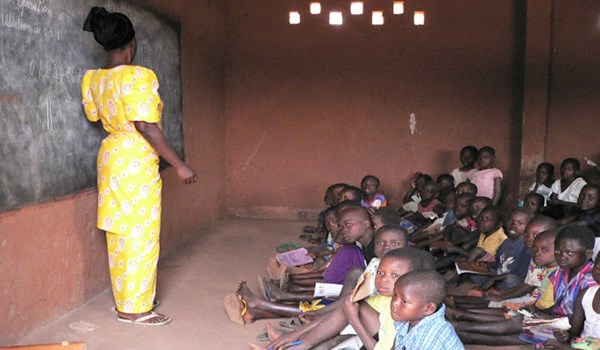
RNA - According to diplomatic sources, O'Brien made his remarks in a closed-door meeting, which was not on the official council agenda and was called for by France, following his recent visit to the country, Al Waght reported.
The aid chief's warning echoed what he said earlier this month, when he told a UN meeting "the early warning signs of genocide are there" and urged more troops and police to bolster the UN peacekeeping mission in the strife-torn country.
The United Nations maintains some 12 500 troops and police on the ground to help protect civilians and support the government of President Faustin-Archange Touadera, who was elected last year.
The number of displaced in CAR, a country of 4.5 million people, has soared to 600 000, O'Brien said according to the diplomat, who added the tally was 40% higher than last year.
The UN official also warned the council of violence targeting humanitarian actors on the ground, forcing them to drop many of their duties. Violence is spreading in the country, including in the region of Bangassou in the southeast, the same diplomatic source said.
While Touadera's government remains in control in Bangui, its authority is weak outside of the capital where former Seleka groups and Anti-balaka fighters have clashed.
Nine United Nations Multidimensional Integrated Stabilization Mission in the Central African Republic (MINUSCA) peacekeepers have been killed this year, raising alarm that the country is sliding back to the bloodletting that exploded in 2013.
O'Brien said he was horrified by a visit he made to a refugee center in the southern town of Bangassou where 2,000 Muslims took refuge three months ago, surrounded by Anti-balaka Christian fighters who are threatening to kill them.
"The risks are extremely high, and we must focus properly on whether to relocate them to another site or not," he said.
In March 2013, the Central African Republic toppled into chaos when then President Francois Bozize was ousted by the mainly Seleka opposition alliance and was replaced by Michel Am-Nondokro Djotodia, the first Muslim to hold the presidency in the generally-Christian nation.
The coup, however, caused a series of deadly retaliatory attacks between the Seleka rebels and the brutal Christian militia known as anti-balaka, who reacted by engaging in large-scale attacks against the minority Muslims.
Some 13,000 peacekeepers have been deployed to the country by the UN as part of MINUSCA. Muslims, however, say it does not do enough to protect them against scores of armed groups.
847/940